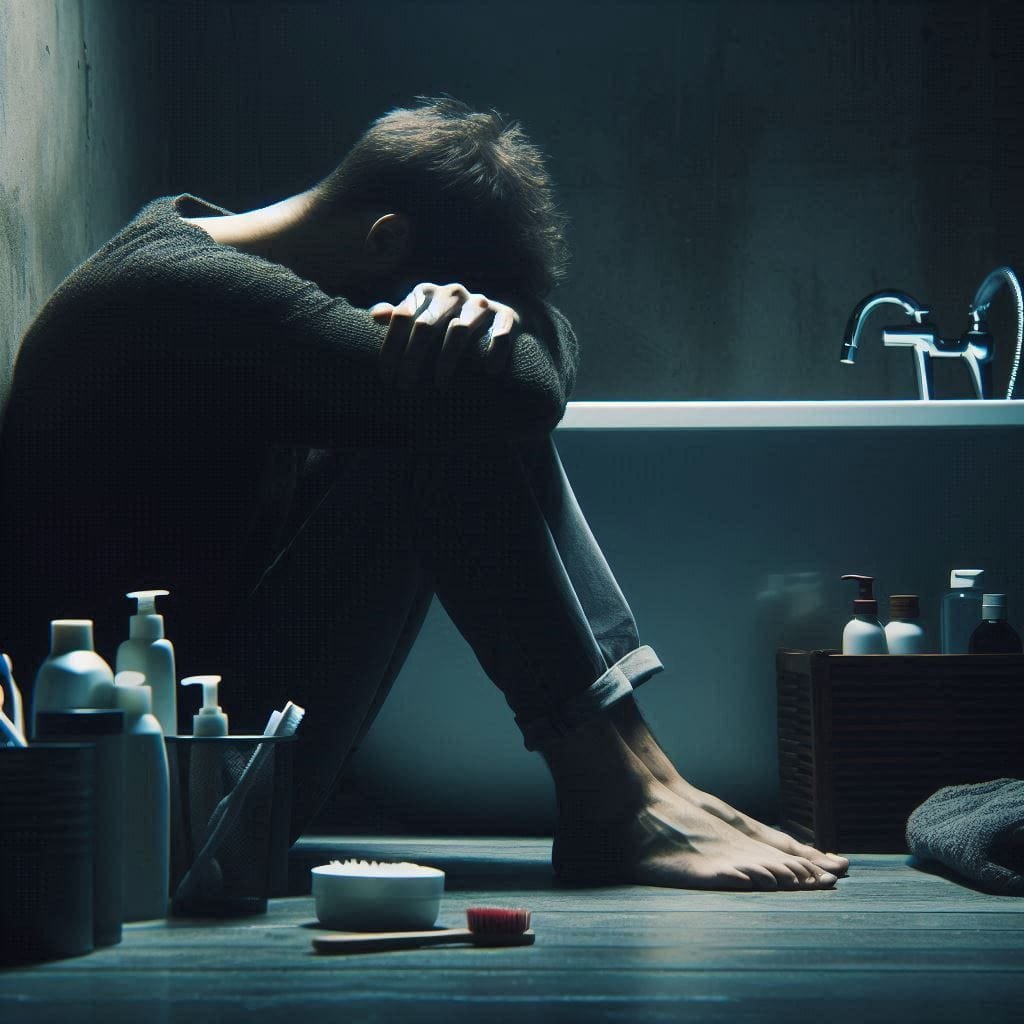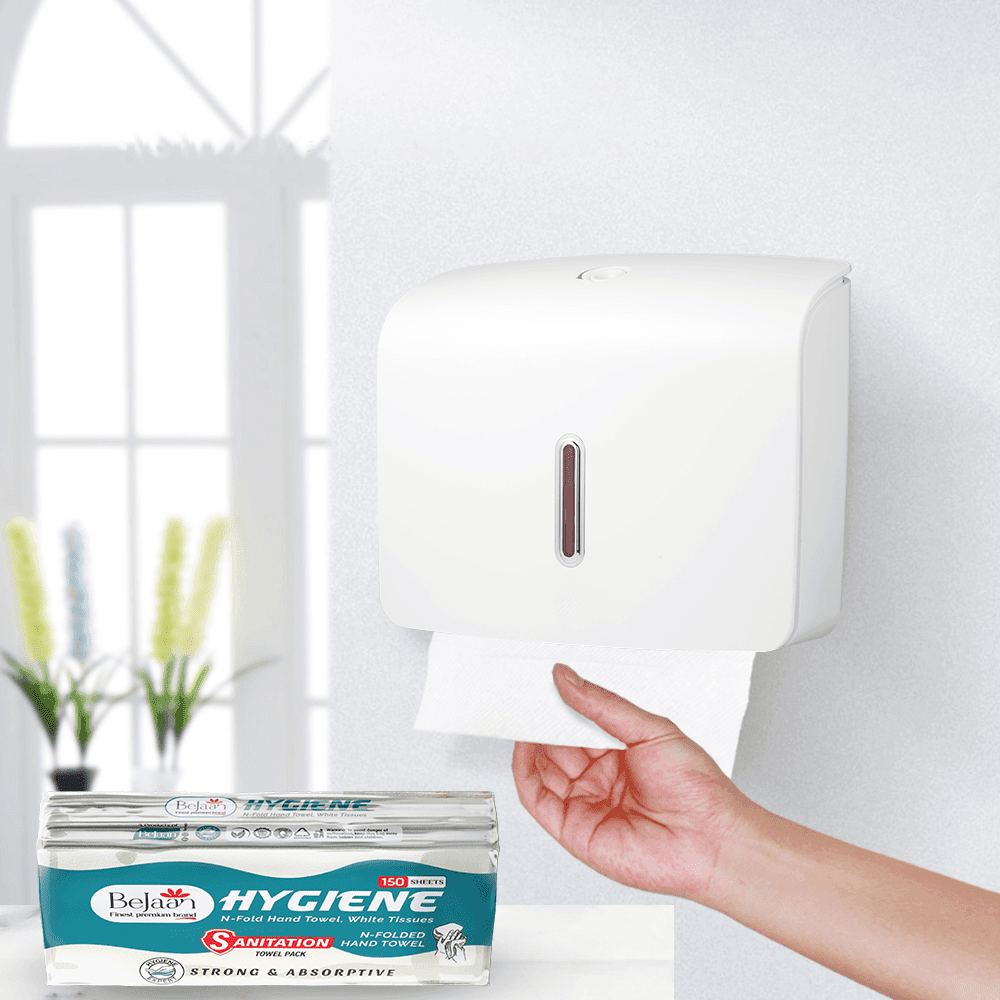
Is Your Mess a Mess in Your Mind?

Link between cleanliness and mental health
Bad cleanliness may not seem like a big deal at first glance, but it’s a whole lot worse than that. Mental health and good cleanliness are closely linked. It looks like a seesaw: when one side goes down, the other side goes up. Bad cleanliness is not only a sign that something is wrong, but it may also be a cause of the problem. We’re not just talking about feeling a little dusty; we’re talking about big things like depression, anxiety, and mood problems.
Picture your thinking as a lawn. It can quickly become overgrown with weeds if you don’t keep up with it by pulling weeds, feeding the plants, and giving them some sunlight. Not taking care of your cleanliness is like letting weeds grow out of control. It’s not just about looking good or feeling good; it’s about keeping your mental lawn in check.

Dangerous cycle of bad hygiene and sadness
Depression is very sneaky. It doesn’t just make you sad; it drains your energy, kills your drive, and can make even the simplest tasks seem like they’re way too hard. When someone is depressed, the last thing they might want to do is take a shower or brush their teeth. But here’s the catch: putting off those basic hygiene tasks can make sadness worse.It keeps going and going. If you don’t take care of your cleanliness, you might feel more alone and ashamed. This makes the sadness worse, which makes it even harder to get out of bed the next day. You sink deeper and deeper as you try to get out of it, like being stuck in quicksand. Unfortunately, there is a clear link between sadness and bad hygiene. This is one of those things that can get out of hand before you even realise it’s happening.
Daily hygiene habits that show signs of depression
So, what are some signs of depression that might show up in a person’s hygiene? You don’t have to just skip a shower occasionally – everyone has lazy days. But if someone starts to ignore their cleanliness all the time, that’s a red flag. There are many ways that signs of depression can show up, such as:1. Not taking baths or showers for days or even weeks: Sometimes it’s just skipping at first, but over time it turns into a pattern.
2. Not taking care of your teeth: Brushing your teeth can feel like too much work, which can cause bad breath and other dental problems.
3.Wearing the same clothes over and over without cleaning them: This isn’t really comforting; it’s about losing the drive to change.
4.Unkempt hair: Failing to maintain regular hair hygiene can signal mental health issues, including depression and anxiety.
5.Not taking care of your skin: This could mean not washing your face or treating skin problems that come up from time to time.
These actions aren’t just signs that someone is sad; they can also be clear signs of a more serious mental health issue. If you or someone you know has these signs, you might want to check out what’s going on below the floor more closely.
Problems with mental health and bad hygiene
Being depressed isn’t the only thing that can make someone forget to clean up. Bad grooming habits can be caused by several mental illnesses. As an example:1.Obsessive-Compulsive Disorder (OCD): Some people with OCD clean excessively, while others avoid hygiene because they are afraid of getting germs or feel compelled to follow certain routines that make hygiene tasks too difficult.
2.Anxiety Disorders: People with anxiety disorders may feel like they can’t handle even their smallest chores when they are very hysterical. Because of this, people may ignore their hygiene to avoid the stress that comes from their work.
3.Schizophrenia: This very serious mental illness can make people think and act in a disorganised way, which can make them forget to take care of themselves and be clean.
4.Bipolar Disorder: People with bipolar disorder may not take care of themselves as well when they are depressed. It’s also possible for them to act recklessly or without thinking during hyper episodes, which can affect how well they take care of themselves.
People with these mental illnesses don’t just struggle with their thoughts; they can also face significant challenges in taking care of their bodies. Neglecting personal hygiene due to a mental illness can have long-lasting effects on both health and relationships.
How bad hygiene makes people look bad
Bad hygiene carries a big social stigma, which is a shame. People in our society often think that cleaning is a sign of worth, and if someone doesn’t meet these standards, they are often harshly judged. A lot of people don’t understand that bad cleanliness is usually a sign and not a choice.
Think about trying to tell someone that you didn’t take a shower because getting out of bed felt like running a race. Like you haven’t brushed your teeth in days because the fog in your mind got so thick that you forgot you needed to do it. Other people find it hard to understand, especially if they haven’t been in that person’s shoes.
This shame could make it even harder for someone who is having trouble with their mental health to get help. Fear of being judged can make people feel alone, which makes the problem worse. The catch-22 situation is cruel, and many people find themselves stuck in it.
How it changes relationships and everyday life
Having bad cleanliness can make relationships harder, both in and out of work. In a social setting, it can make someone feel alone because their friends and family might not understand the deeper problems and will only see how they look. This can lead to awkward talks, hurt feelings, or even relationships that don’t work out. In the administrative centre, not taking care of your hygiene can hurt your job. Colleagues might not want to work closely with someone who doesn’t take care of their cleanliness, which could hurt job performance and growth opportunities. It’s a difficult truth that many people who are in situations that are hard on their mental health must deal with. But it’s no longer just about how other people see someone who has bad health. Besides that, it’s also about how they see themselves. Not taking care of your cleanliness can make you shallow and lower your self-confidence over time. If you don’t like how you look or smell, it’s hard to feel confident in other parts of your life. This could lead to a chain reaction that affects everything from personal relationships to career success.Breaking the cycle of struggle
So, how can someone break the habit of bad hygiene and get their mind in better shape? It isn’t easy, and people often need a mix of self-care, professional help, and support from friends and family. Here are some steps that might help:1. Begin Small: If the thought of full grooming recurring seems too much, start with just one task. After you’ve done that, praise yourself – you’re moving in the right direction.

2. Set a routine: Making daily cleanliness a habit can help make those duties seem less overwhelming. Write down your process and put it somewhere you can see it to help you remember to do it. Adding the BeJaan Toilet Paper Roll to your bathroom routine is one example of a small but important move.
3. Get Professional Help: If bad hygiene is a sign of a greater problem with intellectual fitness, it’s important to get help from a professional in intellectual fitness. It’s amazing how powerful therapy, a cure, or a mix of the two can be.
4. Ask for Help: Don’t be afraid to ask friends and family for help. Having someone in your corner could make all the difference in the world, whether it’s a friend checking in on you or a family member helping you set up a routine.
5. Enjoy your progress: Every little bit counts. You should be proud of your progress, no matter how small it seems. These small wins can add up to big changes over time.
6. Mindfulness and self-compassion: With mindfulness, you can be aware of your thoughts and feelings in the present moment. Self-compassion is very important. Remind yourself that it’s okay to fight and that you’re not alone.
What does mental health awareness do for you
Recognising mental health problems is a key part of getting rid of the stigma surrounding poor cleanliness and mental health issues. We can create a more knowledgeable and helpful environment by learning about the difficult situations that come with mental health issues and teaching others about them as well. The story that bad cleanliness is caused by being lazy or forgetting about it needs to be turned on its head. You should see it as a sign of a bigger problem and think about getting help for that person. By making more people aware of the problem, we can support those who are suffering to get the help they need without fear of being judged.



Nice.